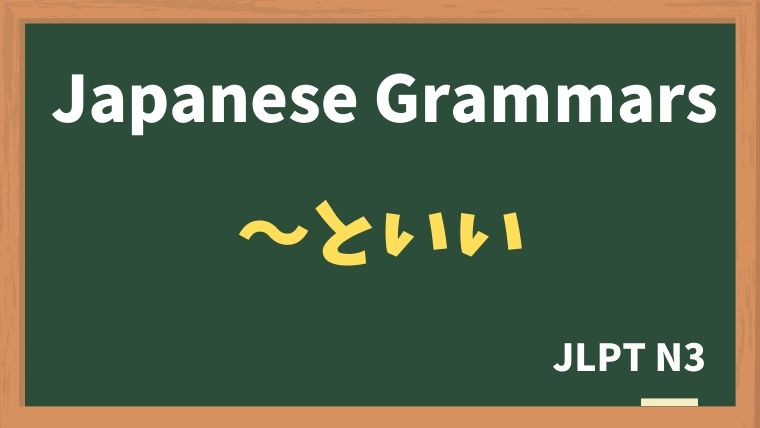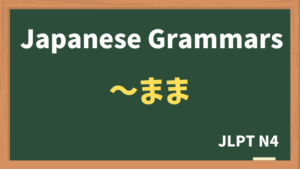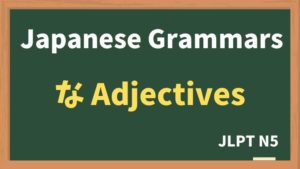
Explanation:〜といい
fa-check-circleMeaning
"I hope / I wish"
This sentence pattern is used to say that you hope something nice happens. When you say "〜といいですね", you hope for the good luck of somebody other than you. On the other hand, When you say "〜といいんですが", you hope for your own good.
fa-check-circleForm
V(plain form)+ といいですね / といいんですが。
イA(plain form) + といいですね / といいんですが。
ナA(plain form) + といいですね / といいんですが。
N(plain form) + といいですね / といいんですが。
fa-check-circleJLPT Level
N3
Sample sentenes
〜といいですね
A:あ〜、来週はJLPTの試験だ。
B:N1に合格できるといいですね。
A:Ah, the JLPT is next week.
B: I hope you can pass N1.
A:来年、大学を卒業するので、いま就職活動をしています。
B:いい会社が見つかるといいですね。
A:I will graduate from college next year, so I am job hunting now.
B: I hope you can find a good company.
A:母が病気なので、今日の飲み会は欠席します。すみません。
B:そうですか。早く良くなるといいですね。
A:I will be absent from today’s drinking party because my mom is sick. Sorry.
B:I see. I hope she will get well soon.
〜といいんですが
次のテストが簡単だといいんですが。
I hope the next exam is easy.
家に帰るまでに、雨が降らないといいんですが。
I hope it doesn't rain until I go home.
来週から夏休みだ。宿題が少ないといいんですが。
It will start summer vacation next week. I hope the homework is few.
Vocabulary
| Japanese |
English | |
| 合格する | ごうかくする | to pass |
| 就職活動 | しゅうしょくかつどう | job hunting |
| 欠席する | けっせきする | to be absent |






